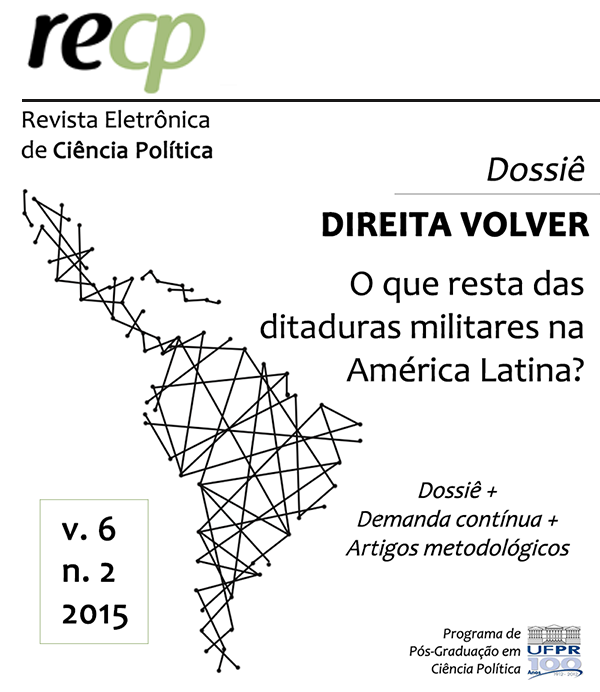INSTITUTIONAL REFORMS IN THE BRAZILIAN MINISTRY OF DEFENSE (2007-2011) AND THE PRINCIPAL-AGENT FRAMEWORK
DOI:
https://doi.org/10.5380/recp.v6i2.42526Palavras-chave:
Ministry of Defense, civilian control, delegation, democracy.Resumo
This study analyses the institutional reforms that took place inside the Brazilian Ministry of Defense between 2007 and 2011. By stressing the strategic interaction between civilian and military members, we shed light on recent advances in institutionalizing civilian control. More precisely, measures such as creating a joint staff of the armed forces, changing the rules on military budget proposal and on promotion of military officers, connecting ministerial secretaries and helping to consolidate a civilian staff at the Ministry of Defense. These initiatives have reversed a historical pattern. That is, a high degree of autonomy of each service branch’ commanders vis-à-vis the Minister. As a conclusion, we say that the adoption of monitoring and intrusive mechanisms reveals a logic of delegation and division of labor, thus indicating a higher degree of professionalization among the Brazilian armed forces.
Downloads
Como Citar
Edição
Seção
Licença
Direitos Autorais para artigos publicados nesta revista são do autor, com direitos de primeira publicação para a revista. Em virtude de aparecerem nesta revista de acesso público, os artigos são de uso gratuito, com atribuições próprias, em aplicações educacionais e não-comerciais. O conteúdo pode ser reproduzido para fins não-comerciais, desde que citada a fonte, seguindo a licença Creative Commons.
Além disso, o autor compromete-se a citar a primeira edição do artigo em todas as edições posteriores, incluindo em línguas estrangeiras.



